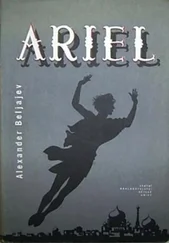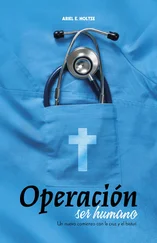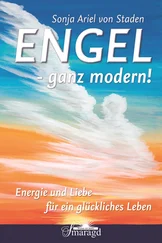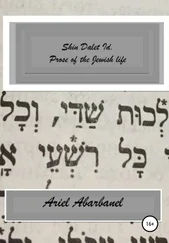Ariel Toaff - Blood Passover
Здесь есть возможность читать онлайн «Ariel Toaff - Blood Passover» весь текст электронной книги совершенно бесплатно (целиком полную версию без сокращений). В некоторых случаях можно слушать аудио, скачать через торрент в формате fb2 и присутствует краткое содержание. Жанр: Религиоведение, на английском языке. Описание произведения, (предисловие) а так же отзывы посетителей доступны на портале библиотеки ЛибКат.
- Название:Blood Passover
- Автор:
- Жанр:
- Год:неизвестен
- ISBN:нет данных
- Рейтинг книги:3 / 5. Голосов: 1
-
Избранное:Добавить в избранное
- Отзывы:
-
Ваша оценка:
- 60
- 1
- 2
- 3
- 4
- 5
Blood Passover: краткое содержание, описание и аннотация
Предлагаем к чтению аннотацию, описание, краткое содержание или предисловие (зависит от того, что написал сам автор книги «Blood Passover»). Если вы не нашли необходимую информацию о книге — напишите в комментариях, мы постараемся отыскать её.
Blood Passover — читать онлайн бесплатно полную книгу (весь текст) целиком
Ниже представлен текст книги, разбитый по страницам. Система сохранения места последней прочитанной страницы, позволяет с удобством читать онлайн бесплатно книгу «Blood Passover», без необходимости каждый раз заново искать на чём Вы остановились. Поставьте закладку, и сможете в любой момент перейти на страницу, на которой закончили чтение.
Интервал:
Закладка:
p. 35]
CHAPTER TWO
SALAMONCINO DA PIOVE DI SACCO, PREDATORY FINANCIER
Salamoncino da Piove had four sons and a daughter. His family, in addition to managing the ("al Volto dei Negri") lending banks of Piove di Sacco and Padua, had major joint interests in other banks operating in Verona, Ferrara, Montegnara, Soave, Monselice, Cittadela, Bassano and Badia Polesine and was active in the textiles and precious stone trade. A secret and elite clientele, ranging from the Sforza at Milan to the Soranzo of Venice [84] Cfr. D. Carpi, L’individuo e la collettività. Saggi di storia degli ebrei a Padova e nel Veneto nell'eta del Rinascimento , Florence, 2002, pp. 39, 48.
,came to them for huge sums. Marcuccio, Salomone's first-born son, when not operating in Piove si Sacco and Padua [85] On the activities of Marcuccio at Padova and Piove di Sacco, cfr ibidem, pp. 45-50.
,supported by his brothers, stayed at Venice to assist his father in the company set up with David Mavrogonato, and to take over their functions when they accompanied the merchant from Candia in his maritime missions, which were conducted more or less secretly. He was in the City of the Lagoons in the autumn of 1466, as well as in the first half of the following year; thus, he was there in 1468, at the beginning of 1469, during the imperial visit of Friedrich III, and in 1473.
While Salomone was considered a bold and nonchalant businessman, his first-born, Marcuccio, and above all his other son, Salamoncino, darkened his reputation, at least in this respect. Marcuccio was famous to all for his overbearing boastfulness. It was said that, in that of Padua, he used to brag of his strength, real or presumed, with resounding threats: "There is no Christian who would have had the temerity to touch me with one finger, and would not have gotten a good hiding from a couple of well-armed ruffians" [86] Girolamo Campagnola da Padova, in an unpublished oration, written after 1480 in celebration of the martyrdom of Simone da Trento and of Sebastiano Novello at Portobuffolè, recalled Marcuccio’s exasperating arrogance, at that time a money lender at Montagnana: "Quis Marcutio fratre (Salamoncini hebraeo), etiam carcere concluso, audacior et insolentior unquam fuit? Ille mihi ait: scias, velim, Christiani nominis esse neminem, qui mihi digiti, ut ajunt, offensiunculam faciat, quin alteram duorum sibi lacertorum non reddam" [Approximately: “Is there anybody more audacious and impudent than Marcuccio, the brother of Salmoncino the Jew, who spends half his time in jail? He told me, look, no Christian would dare do me any offense, without getting a good beating from two of his henchmen”] (cfr. [Benedetto Bonelli], Dissertazione apologetica sul martirio del beato Simone da Trento nell'anno MCCCCLXXV dagli ebrei ucciso , Trent, Grianbattista Parone, 1747, pp. 280-281).
.
Marcuccio, who lived at Padua "facing the Parenzo or il Volto dei Negri" at least until the end of the winter of 1473, made his appearance as an officially approved money lender at Montagnana in 1475. He was still to be found in that financial center at the beginning of the summer of 1494, when Bernardino da Feltre arrived there to preach. On that occasion, Marcuccio did not hesitate to strut about on the piazza with a defiant air
p. 36]
where the violent and fiery Friar da Feltre was expected to preach. As a result, Marcuccio was soon recognized by a Christian who insulted him, and the whole affair terminated in a sensational brawl, with a mutual exchange of fisticuffs, at the culmination of which the infuriated Marcuccio unsheathed his dagger threateningly. It is not surprising that he was to find himself imprisoned in the prisons of the Republic with relative frequency [87] On 27 February 1473 Marcuccio, at that time a resident of Padua, together with his brother Salomoninco and their father Salomone da Piove, were denounced for calumny and embezzlement by a law student at the Studio (ASP, Notarile, Luca Talmazzo, 253, cc. 252r-254r). On his long residence in Montagnara, documented since 1475, his activity as an approved money lender and the events linked to the visit of Bernardino da Feltre, see, in particular, V. Meneghin, Bernardino da Feltre e I Monti di Pietà , Vicenza, 1974, pp. 489-502.
.
Marcuccio could nevertheless still count on the influential protection of the city of Venice, which protection he had inherited, together with the privileges obtained by his father, Salomone da Piove. In April 1480, the Council of Ten declared him a fidelis noster civis [loyal citizen] of Venice, under the terms of a law approved by the Serenissima at the end of 1463 on the protection of Jewish money lenders. We know that his father chose to live in Venice during this same period, and it is not difficult to believe that this law was in some way the product of some self-interested initiative [88] ASV, Consiglio dei Dieci, Lettere, file 2 (1476-1483). The heads of the Consiglio called Marcuccio "fidelis noster civis Marcuonus (recte: Marcutius) ebreus quondam Salomonis de Plebesaccii" [“Marcuccio, loyal citizen of our city, (son of) the late Salamone di Plebe di Sacco”] , then a resident of Montagnana. The privileges Marcuccio enjoyed, and his father as well, constituted an extension of those granted by Venice to David Mavrogonato and his family in the past. The Doge, in a letter to the rulers of Candia in 1532, referring to Meir Mavrogonato, a descendent of David, recommended the application in his regard of the privileges which he enjoyed, "essendo trattato come li cittadini Venetiani nelle datiii et alter fattioni, et esento lui et figlioli dell'angarie che fanno l'Hebrei, secondo la forma delli soi privilegge" [“being treated like the citizens of Venice in all respects, and free of the annoyances suffered by Jews, according to the manner of their privileges”] (cfr. D. Jacoby, On the Status of Jews in the Venetian Colonies in the Middle Ages , in "Zion", XXVIII, 1963, pp. 57-69 [in Hebrew].
.
But it was Salamoncino, his brother, who maintained uncontested primacy in this poorly regulated financial sector, where transactions took place with the underworld and the law was only obeyed in those rare cases in which its defenders refused large bribes. Salamoncino took over the management of the bank at Pivoe di Sacco after 1464, when his father took up a more or less stable residence at Venice for the purpose of looking after Mavrogonato’s interests, although -- as we shall see -- he seems to have taken up provisional residence at Verona in the years 1470-1480 [89] On Salamoncino’s mercantile and financial activity at Piove di Sacco, Padova and Verona, see D. Jocoby, New Evidence on Jewish Bankers in Venice and the Venetian Terraferma (c. 1450-1550) , in A. Toaff and Sh. Schwarzfuchs, The Mediterranean and the Jews. Banking, Finance and International Trade (XVI-XVIII Centuries), Ramat Gan, 1989, pp. 155-156; Capri, L’individuo e la collettività , cit., pp. 54-58; G.M. Varanini, Appunti per la storia del prestito e dell'insediamento ebraico a Verona nel Quattrocento , in G. Cozzi, Gli ebrei e Venezia (secoli XIV-XVIII), Milan, 1987, p. 621.
. In 1474, the Duke of Milan ordered an inquiry of Salamoncino and his suspected accomplices, all accused of illegal purchasing and selling pearls, despite the legal provisions prohibiting Jews from engaging in this trade [90] Cfr. Sh. Simonsohn, The Jews in the Duchy of Milan , Jerusalem, 1982, vol. I, p. 633, no. 1538. The document is dated: Lonate, 30 October 1474.
.
Salamoncino had already experienced serious legal problems. In 1472, two common criminals, Giovanni Antonio da Milano and Abbondio da Como, were arrested in Venice under the accusation of importing large quantities of counterfeit silver coin from Ferrara and selling it in Venice, earning large profits [91] ASV, Avogaria di Comun, Raspe, 3653 (II), cc. 8v-9r (29 May 1472). I wish to express my sincere thanks to Dr. Rachele Scuro for her invaluable assistance in transcribing the documents and my friend Reiny Mueller of Venice for his archiving tips, which were always illuminating. "Joannes Antonius de Mediolano et Abundius de Cumis [...] confessi fuerunt se pluries conduxisse e Farraria Venetias multam quantitatem monetarum argenti falsarum verum grossestos et grossones ad similitudinem stampe Dominii Nostri, quas monetas scienter accipiebant a fabricatoribus illarum et illas, reductas Venetias, dispensabant diversis personis, a quibus habebant ad incontrum ducatos auri et argenti cum certa sua utilitate". On the crisis of May 1472 and the "monetary war" being waged between Venice and Milan, see, in particular, R.C. Mueller, L'imperialismo monetario veneziano nel Quattrocento , in "Società et Storia", VIII (1980), pp. 227-297 (292-294); Id., Guerra monetaria fra Venezia e Milano nel Quattrocento , in La Zecca di Milano , Records of the Congress, Milan, May 1983, pp. 341-355.
. This fraudulent trade was operated through a front operation, a butcher shop owned by a certain Nicola Fugazzone, "butcher at Venice", at San Cassian, and a Jewish intermediary, Zaccaria di Isacco, who had his provisional residence in Venice, and was responsible to Salamoncino, money lender at Piove di Sacco [92] ASV, Avogaria di Comun, Raspe, 3653 (II), c. 9rv (29 May 1472): "Nicolaus Fugaconus, becharius de Veneciis et socii quos processum fuit [...] pro eo quod etiam ipse habuit commertium cum Abundio infrascripto, conductore monetarum falsum, a quo recepit satis bonam quantitatem dictarum falsarum pecuniarium, cum utilitate .XIII pro centenario, et fuit medius ad faciendum quod Salamoncinus supascriptus haberet de dictis monetis cum infrascripto Zacharia, etiam judeo [...] quod procedatur contra Nicolaus Fugaconus, Laurentium Paulo et Zachariam iudeum qui, spiritu avaritie ducti, scienter acceptaverunt, cum certa utilitate, monetas argenti falsas ex Ferraria Venetias conductas, illas dispensando pro bonis".
. The police authorities succeeded in laying their hands on all members of the gang, and they were tried before the judges of the Municipal Avogaria of Venice on 29 May 1472.
Интервал:
Закладка:
Похожие книги на «Blood Passover»
Представляем Вашему вниманию похожие книги на «Blood Passover» списком для выбора. Мы отобрали схожую по названию и смыслу литературу в надежде предоставить читателям больше вариантов отыскать новые, интересные, ещё непрочитанные произведения.
Обсуждение, отзывы о книге «Blood Passover» и просто собственные мнения читателей. Оставьте ваши комментарии, напишите, что Вы думаете о произведении, его смысле или главных героях. Укажите что конкретно понравилось, а что нет, и почему Вы так считаете.












